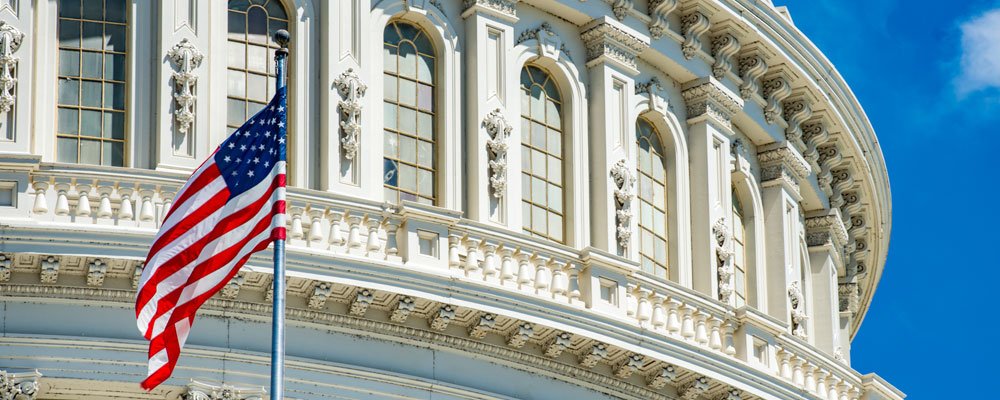In May, the House of Representatives, led by Democrats, passed the $3 trillion Health and Economic Recovery Omnibus Emergency Solutions (HEROES) Act. The Senate has not yet voted on the bill although Democrats continue to support it.
On Monday, Mitch McConnell, Republican Senate Majority leader, unveiled a $1 trillion Health, Economic Assistance, Liability Protection, and Schools (HEALS) Act after negotiations with the White House. Republicans have yet to rally around the bill with some dissenting Senators; however, McConnell has called this a “starting point” for negotiations.
In the coming weeks, the two parties will negotiate these bills in hopes of coming to an agreement for a new (“Phase 4”) round of coronavirus legislation. What’s on the table for discussion? Below we summarize the major economic provisions included in each bill.
State and Local Aid (Disagree)
HEROES – Approximately $915 billion in direct aid to states and local governments to replace lost revenues during periods of shutdown
HEALS – No additional money is provided. But the HEALS Act does allow for increased flexibility in using funds established by the CARES Act
Rebates/Direct Payments to Households (Generally Agree)
HEROES – HEROES includes the second round of stimulus rebates, in the same amount as the first round; however in this bill dependents would also receive $1,200 (up from $500) and expands the definition of dependents. In this round, to receive funds, you would only need a taxpayer ID number, not a social security number.
HEALS – The second round of economic stimulus rebates, nearly identical to the first round, is included in the bill. The one change is that the additional $500 for qualifying dependents would have an expanded definition (not just children 17 and under)
Pandemic Unemployment (Disagree)
HEROES – The HEROES act extends the $600 pandemic unemployment provided through January 31, 2021.
HEALS – The HEALS Act decreases the $600 pandemic unemployment provided per week to $200 through September. Beginning in October, payments would replace 70% of lost wages up to $500 per week (combined with state benefits). There are a few changes to note including the eligibility of 501(c)(6) entities, who were previously ineligible, a simplified forgiveness process for small loans, and some new eligible costs
Liability Protection (HEALS only)
HEROES – N/A
HEALS – This is a central tenet of the Republican plan. The HEALS Act provides a five-year liability protection to limit lawsuits brought against employers, schools, and hospitals for exposure to coronavirus (barring gross negligence)
Additional Round of PPP (HEALS only)
HEROES – N/A
HEALS – Businesses with 300 or fewer employees who have experienced a 50% or more reduction in gross revenues would be able to take out a second PPP loan of up to $2 million
Individual Tax Deductions and Credits Expansion (HEROES only)
HEROES – HEROES creates a new above-the-line deduction, a new self-employed credit, and expands both the existing Child Tax Credit (CTC) and Earned Income Tax Credit (EITC)
- The new above-the-line deduction is a $500 write-off for first responders supplies and equipment for COVID-19
- Self-employed individuals with business disruption who have lost more than 10% of gross income would be eligible to claim a credit (AGI phase-out begins at $60,000 single and $120,000 MFJ)
- The CTC would be fully refundable, increase to $3,000 per child, and $3,600 per child under age 6 (up from $2,000 per child). And this could be advanced to families to help with cash flow during the crisis. There is also an expansion of the Child and Dependent Care Tax Credit for those with qualifying costs
- The EITC is expanded with a larger phase in and increased phase-out
HEALS – N/A
Business Tax Credit Expansion (Some Agreement)
HEROES – This bill creates two new and expands the Employee Retention Credit (ERC)
- New Credit for Certain Fixed Expenses of Employers Subject to Closure or Reduced Gross Receipts – Qualified expenses such as mortgage, rent, utility payments, would be eligible for a 50% credit if the business is required to close or gross receipts have decreased more than 20% and have no more than 1,500 employees
- New Credit for COVID-19 benefits paid by employer – Credits would be available for 50% to 30% of Section 139 qualified disaster relief payments made by employers
- The ERC would have an increased maximum of $45,000 (up from $10,000), an easier qualification threshold (expanding 100 employee limit to 1,500), create a partial credit for those who have experienced between 10% and 50% decreases in revenue, and have a higher reimbursement rate (80%, not 50%)
HEALS – In this bill both the Employee Retention Credit (ERC) and the Work Opportunity Tax Credit (WOTC) are given additional funding. This bill also creates a new credit for coronavirus expenses
- Most notably, PPP recipients would be able to claim the ERC (not for the same wages). The ERC will also have an increased maximum ($30,000 per year up from $10,000), an easier qualification threshold (25% reduction in revenues, not 50% and expanding the 100 employee limit to 500 employees), and a higher reimbursement rate (65%, not 50%).
- The WOTC would expand to include COVID-19 unemployment recipients as a qualifying group and the maximum credit would be expanded to $50,000 (up from $2,400)
- New Credit – The new credit, refundable against payroll taxes, would provide a credit of up to 50% of an employer’s qualified employee protection expenses (testing, cleaning, PPE). The amount of qualified expenses allowed is $1,000 for the first 500 employees, $750 for the next 500, and $500 for each employee over 1,000.
Rental and Mortgage Assistance (HEROES only)
HEROES – The HEROES Act provides almost $200 billion in additional housing assistance. $100 billion is aimed toward emergency rental assistance for low-income renters and $75 billion toward state housing finance agencies to help homeowners at risk for mortgage default and foreclosure
HEALS – N/A
Hazard Pay (HEROES only)
HEROES – $200 billion in the HEROES Act is appropriated for a “Heroes’ Fund” to provide hazard pay to essential workers. Essential workers who make under $200,000 per year could collect up to $10,000; those who make over $200,000 could be paid up to $5,000.
State Mobility (HEALS only)
HEROES – N/A
HEALS – State income taxes would be modified under the HEALS act to ensure that, through 2024, employees who work in multiple states would only be subject to income tax in their state of residency and states where they are present and working for more than a limited time during the calendar year
Removal of SALT $10,000 Cap (HEROES only)
HEROES – Removes $10,000 State and Local tax limit on itemized deductions for 2020 and 2021
HEALS – N/A
Full Deduction for Business Meals (HEALS only)
HEROES – N/A
HEALS – Business meals would be fully deductible (increased from 50%) for the remainder of 2020.
Student Loans (HEROES only)
HEROES – Would defer federal student loans an additional year with no interest. Provides $10,000 of federal and private student loan forgiveness.
HEALS – N/A
Changes to CARES (HEROES only)
HEROES – The House bill would disallow NOL carrybacks to years before 2018 (higher income tax years/before the Tax Cuts and Jobs Act) and would remove the excess business loss limitation reprieve provided for in the CARES Act
HEALS – N/A
The big ticket items that will need to be resolved include the Democrats desire to send state and local governments additional aid and the Republican’s desire to have liability protection included as well as the best way to handle pandemic unemployment benefits in what is still a high-unemployment environment. Both parties want another round of coronavirus stimulus and we remain cautiously optimistic for an agreement before Congress recesses in August.





